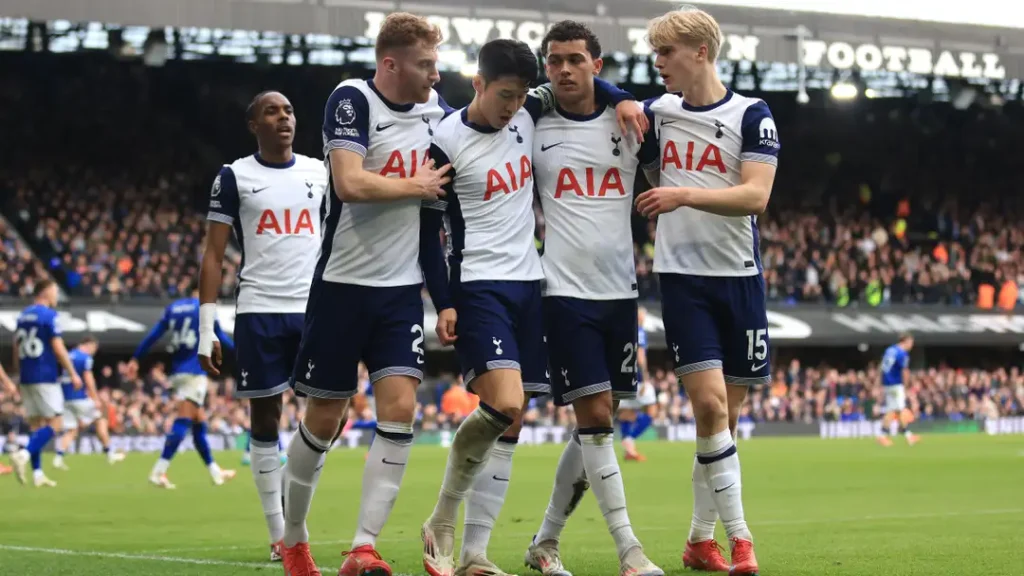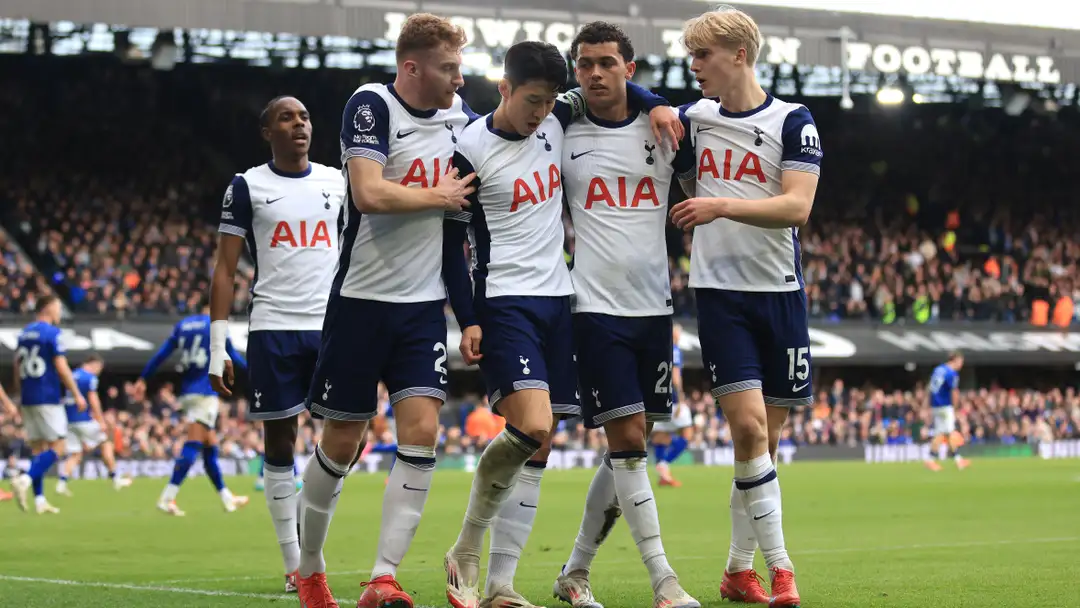Another dismal performance at the Tottenham Hotspur Stadium has laid bare the growing frustrations within Ange Postecoglou’s squad. Monday night’s 2-1 defeat to Nottingham Forest – their eighteenth league loss this campaign – saw Spurs sink to sixteenth place, their lowest position at this stage of a Premier League season in over a decade.
While injuries have undoubtedly played their part, Dejan Kulusevski’s scathing assessment of the club’s transfer policy suggests deeper structural problems at play.
The Swedish winger, making his first appearance since February, didn’t mince words when comparing Tottenham’s squad depth to their rivals. “The top clubs have been doing this for years,” Kulusevski told reporters. “They know exactly what they’re doing.
They bring in players ready to compete on multiple fronts. We can’t say we’re prepared this season – we’ve made too many mistakes from the beginning and now we’re paying the price.” His comments cut through the usual platitudes, revealing a dressing room acutely aware of their shortcomings.
While Tottenham invested heavily last summer, bringing in Dominic Solanke, Archie Gray, and Wilson Odobert for a combined £90 million, their recruitment appears increasingly misguided.
Solanke’s six league goals pale in comparison to the output of proven strikers at rival clubs, while teenage prospect Gray has shown flashes of promise but remains raw. Odobert, despite his obvious talent, has struggled with the physical demands of English football. These signings – while potentially valuable long-term assets – have failed to provide the immediate quality needed to compete across multiple competitions.

Kulusevski’s frustration stems from more than just results. His pointed remarks about preparation highlight a fundamental mismatch between Tottenham’s ambitions and their squad building. “After big European nights, you always drop physically,” he explained. “That’s why clubs competing on multiple fronts invest properly. We’re not handling it well.”
The statistics bear this out – Spurs have conceded first in eleven of their last fifteen matches, often looking lethargic from the opening whistle. Monday’s performance followed this familiar pattern, with Forest racing into an early lead (including a disallowed third goal) before Tottenham mounted their characteristic but ultimately futile second-half response.
The 23-year-old’s personal situation adds another layer to his critique. Having missed two months with a knee injury, his return offered one of few bright spots in an otherwise grim evening.
“I feel great physically,” he insisted. “I used my time out wisely – extra training, family time, proper recovery. Now I’m ready to finish the season strong.” His professionalism contrasts sharply with the broader malaise at the club, where inconsistent fitness levels and recurring muscular injuries suggest deeper problems in the medical and conditioning departments.
Tottenham’s immediate fixtures offer little respite. A trip to Anfield awaits, where a Liverpool side chasing the title will smell blood against their vulnerable opponents.
Then comes the Europa League semi-final against Bodo/Glimt – a competition that represents their last chance at salvaging something from this disastrous campaign. Even here, questions linger about squad rotation and fatigue management, issues Kulusevski implicitly criticized when referencing the club’s lack of preparedness for dual-front commitments.
Behind the scenes, Daniel Levy faces mounting pressure to reassess the club’s transfer strategy. While Postecoglou has publicly backed the board, Kulusevski’s comments suggest player patience is wearing thin.
The disconnect between signing promising youngsters and fielding a competitive first eleven grows more apparent with each passing week. As rivals like Aston Villa and Newcastle demonstrate the benefits of targeted, experienced recruitment, Tottenham’s scattergun approach looks increasingly outdated.
What emerges is a picture of a club at odds with itself – one that talks of Champions League aspirations but builds a squad incapable of handling Thursday-Sunday football. Kulusevski’s outburst, rare for its candor from a current player, may well mark a turning point.
Either Tottenham learn from these mistakes and invest in proven quality this summer, or risk falling further behind in the Premier League’s relentless arms race. One thing is certain: as the Swede made clear, simply hoping for better results isn’t a strategy – it’s surrender.

